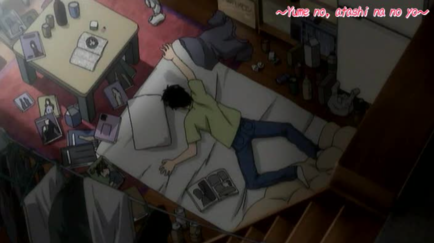Hikikomori
Jump to navigation
Jump to search
A hikikomori (Japanese for "pulling inward, being confined") is a person who refuses to leave their parent's house, doesn't work or pursue education and isolates themselves away from society and their family in a single room for a period of six months or more[1]. A hikikomori's life often ends badly after their dependent parent or provider dies, so roping and/or murder after the death is relatively common. Roughly half a million young Japanese are extreme hermits depending on their parents. The English equivalent term is the Peter-pan generation.
The term also refers to the general societal trend of infantilization in Japan.
Characteristics[edit | edit source]
Causes[edit | edit source]
- Bullying.
- Social, romantical and sexual rejection.
- Post-traumatic stress disorder (PTSD).
- Extreme shyness.
Consequences[edit | edit source]
- Celibacy
- Depression
- Roping
- Friendlessness
Sex ratio[edit | edit source]
About 90% of hikikomoris are male.[2]
See also[edit | edit source]
References[edit | edit source]
- ↑ https://www.ncbi.nlm.nih.gov/pmc/articles/PMC5775123/
- ↑ https://www.hikikomoriitalia.it/p/characteristics-of-average-hikikomori.html#:~:text=According%20to%20Japanese%20data%20the%20hikikomori%20would%20be%2090%25%20male.&text=What%20causes%20this%20imbalance%3F,is%20culturally%20greater%20for%20men.
